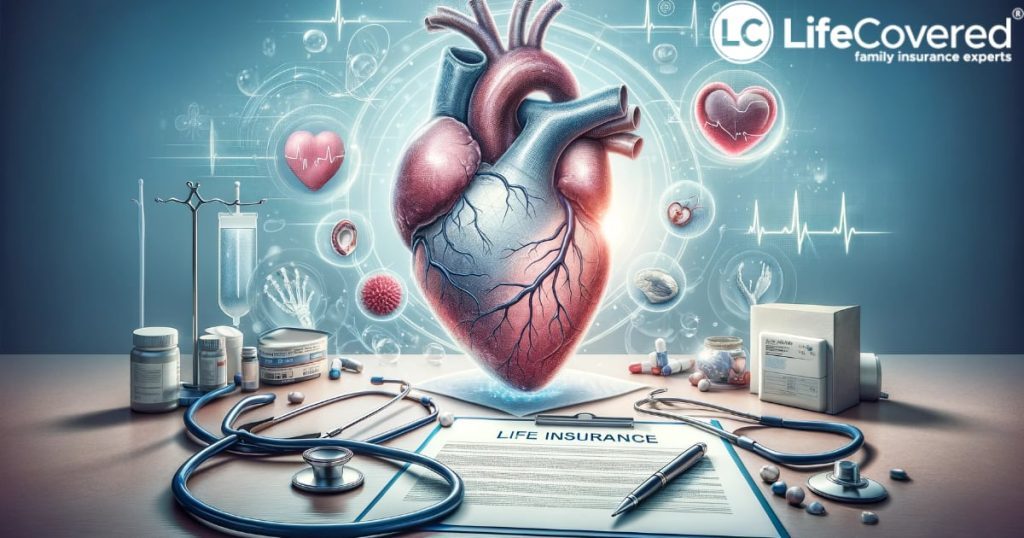How to Get Life Insurance After a Heart Attack
- By Willi Olsen
- Updated
Can I Get Life Insurance After a Heart Attack?
Yes, it is possible to get life insurance after a heart attack. After a heart attack, the policies you can qualify for and the cost of those policies will be affected by your overall health, smoking status, age and how long ago the heart attack occurred.
Here’s what you need to know.
Life insurance is available for people who’ve experienced severe health conditions, including heart attacks.
It is advisable to buy life insurance when you are in good health. People with no preexisting medical conditions will have more options and be eligible for lower premiums. However, if you have had health issues in the past, it does not mean that you cannot buy life insurance.

What you need to know if you're trying to buy life insurance after having a heart attack
You must provide your medical information when applying for a life insurance policy. The specific questions asked will vary depending on the company and the policy type, but you can expect the life insurance provider to ask about:
- When did your heart attack occur?
- What treatment did you receive?
- Have you had a cardiologist’s report done?
- What heart medications do you currently take?
- What heart condition diagnoses do you have?
- What’s your most recent blood pressure as recorded at a medical appointment?
- What are your most recent cholesterol and lipid test results?
The life insurance company will also want to know about your overall health, requesting information such as:
- medications you take
- chronic conditions you have
- history of cancer, stroke, or addiction
- current or past history of smoking
- family history of cancer
You can also expect to answer questions about:
- income
- job/employment history
- criminal record
- general lifestyle
What is a Heart Attack?
Heart attacks occur when the usual blood flow to the heart is interrupted somehow, often due to a blood clot.
A blood clot forms when excess fatty materials (atheroma) accumulate within the arteries; this plaque becomes dislodged and creates a possible blockage within the circulatory system.
While most people experience immediate chest pain when they have a heart attack, there are cases where the discomfort is absent. These are called “silent” heart attacks.
Age, smoking, an unhealthy diet, high blood pressure, high cholesterol levels, and a lack of physical activity can all increase the risk of cardiovascular disease. Heart attacks are diagnosed by measuring troponin or creatine kinase (CK-MB) levels in a blood test. Electrocardiograms (ECGs) are commonly used to identify the type of myocardial infarction that has occurred.
Also: Coronary artery bypass surgery, Myocardial infarction, MI, acute myocardial infarction, AMI
Linked with: Coronary heart disease (CHD), type 1 diabetes, type 2 diabetes, high BMI, cardiac arrest, and high blood pressure
FAQ's
Don’t worry if a heart attack causes one company to decline or refuse your life insurance. Other insurance companies offer coverage to people in similar situations. The important thing is to find the right insurer to apply to, and that’s where we can assist you.
Insurance policies are set up at standard rates or special terms. Standard rates refer to the insurance policy that the insurer has offered at the lowest premium that the insurer can offer, based on your circumstances.
A life insurance policy negotiated with special terms will likely have increased the monthly insurance payments to offset the added risk that the insurer feels is present of a claim on the policy, with you having had a heart attack. This is a common occurrence.
Four tips for how to shop for life insurance after a heart attack
A heart attack should not prevent you from getting life insurance. You can still purchase the coverage you need. It can help to shop carefully and follow tips such as:
- Use an insurance broker: A life insurance broker is free and can help you compare policies to find a good rate. Furthermore, they possess expertise in assisting individuals who have suffered from heart attacks in getting insurance policies.
- Compare prices and quotes from multiple companies: A good broker will compare insurance companies. The quotes won’t be your final price, but they’ll give you a good idea of what to expect so that you can make the best choice.
- Ask your doctor to note your progress: If you have taken measures to improve your health after experiencing a heart attack, such as maintaining a healthy weight and cholesterol level, consider asking your doctor to note it in your medical file. This note could help you obtain a policy and lower the insurance rate.
- Look into workplace life insurance offered by your Employer: Employer-sponsored life insurance coverage is typically much less than a policy you can buy on your own, but most plans offer guaranteed coverage. It’s a good idea to take advantage of this option, especially if your employer pays some or all of the premium.
Can LifeCovered help?
As a life insurance broker, I understand the unpredictability of life and the impact of unexpected events like heart attacks.
Navigating life insurance options after a health scare can be overwhelming, but you don’t have to do it alone.
Let’s work together to create a plan that meets your unique needs and provides your loved ones with the financial stability they deserve.
Contact me today, and let’s take this critical step towards safeguarding your family’s future.